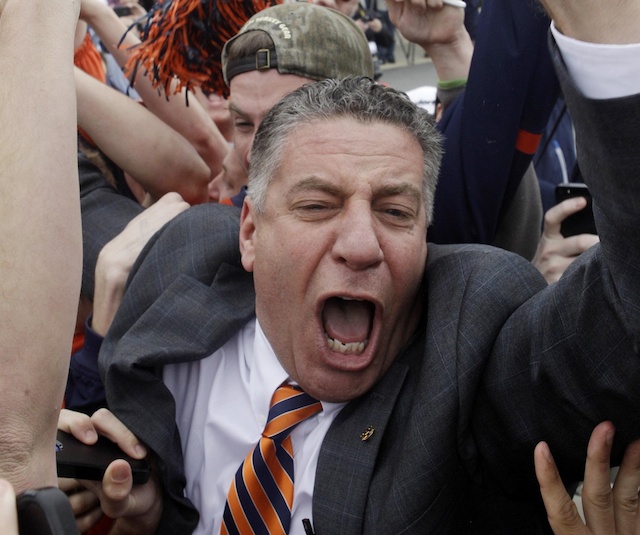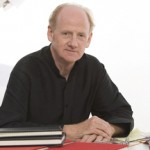And why is he so happy? (Is this happiness or madness?) Why do the people around him love him so much? (They do not know him, not really, but what they do know is good enough, thanks, and shut up, a–hole!)
Let’s say you don’t know who he is. Okay. Where is he? Who are these people? Why the outrageous joy? (Or is it Madness™? See, now I’m giving things away.) It’s a delirious Prodigal-Son-style homecoming, but they’ve never met the guy.
Does he look like a guide for the impressionable young? Did you think, Aha, no doubt! This man is an educator. (Did you really think that?) Well, he is. If the NCAA is full of “student-athletes” – and it is – then this is a teacher-mentor-rabbi-leader-cheerleader-huckster-salesman. He is a college basketball coach, and he is really good at what he does.
His name is Bruce Pearl.
What is he doing?





